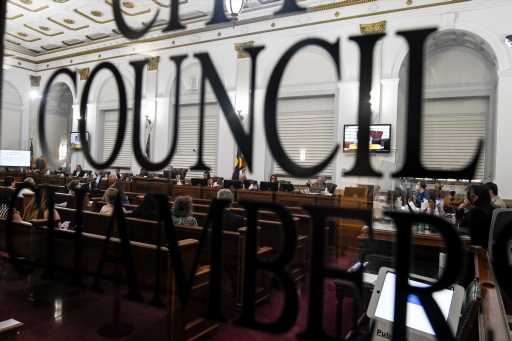Denver Council approves zoning changes despite immigrant clinic’s opposition
The owners of a southeast Denver clinic serving refugees, immigrants and other groups that struggle to afford medical care say they are at risk of shutting down after the City Council changed the land use rules governing their property and cut the maximum building height on their land in half.
They feel singled out over the way the rezoning of their property was handled.
Homeowners in the surrounding neighborhood — and some of the councilmembers who approved the changes — referenced an active development plan that proposes replacing the clinic with a seven-story apartment building when supporting the controversial rezoning. Nearby residents say they welcome the clinic in the University Hills neighborhood and want to see it succeed.
Ramin Vatan, CEO of the Evans Medical Center, dismissed that sentiment. The previous zoning, which allowed buildings as tall as 75 feet, factored into the value of the building that he and his wife Dr. Sara Vatan moved their clinic there in 2020. As he said repeatedly during the meeting, the air above the building had value as well.
“The value of our property will go down by over 65%,” he told the Council before its rezoning vote. “It is easy for the other side to say, ‘Oh, they can operate. Oh, they do this.’ We will go into negative equity. This is going to penalize us.”
The clinic, housed in a two-story, 1980s-built structure, serves 6,000 patients and is fully self-sustaining relying on Medicaid payments, Vatan said. It serves immigrants and unhoused people for free and others who can’t afford medical care on a sliding scale. City records show the property is valued at more than $2 million.
The new zoning approved Tuesday allows for a mix of uses but caps new building heights at three stories. That can buy bumped up to four stories if whatever future building is built there includes a significant amount of affordable housing.
The Evans Medical Center building at 4700 E. Iliff Ave. was just one property included in a package of land use changes approved for the University Hills North neighborhood. The tiny sub-neighborhood of the broader University Hills area is roughly bounded by South Colorado Boulevard, Interstate 25 and East Yale Avenue. It has seen plenty of new development over the last two decades since light rail arrived in the neighborhood with more development is on tap.
District 4 City Councilwoman Kendra Black represents the area and sponsored the changes. She and supporters emphasized the changes were being made to better fit with the vision laid out in the Near Southeast Area Plan that the Council unanimously approved last month. That plan establishes East Iliff Avenue as a dividing line where taller buildings to the north step down to the south as the neighborhood transitions to single-family homes.
“Without implementation, the plan is only aspirational,” Black said. “It’s also important to acknowledge the fact that this new zone district does not jeopardize the work of the clinic nor future expansion. It also doesn’t prevent a future sale or future development of the property.”
Councilman Kevin Flynn noted the concept plan for an apartment building would have displaced the clinic and the new zoning would not. That’s part of why he supported the changes.
“I hope to see this facility continue to operate for many years to come under the same zoning that many health clinics operate under today,” he said.
The council voted 10-3 in favor of the rezoning. The clinic was joined by the owners of a neighboring building housing medical offices, the Bethesda Office building, in opposing the rezoning. None of the other affected properties objected to the changes.
William van Doorninck, is one of the owners of the Bethesda building at 4770 E. Iliff Ave. In written comments he submitted to the city planning department in April he referenced “our current purchase and sale agreement with Trammel (Crow) Residential.”
Representatives for Trammel Crow submitted a concept plan — the first step in the city’s development process — on June 30 of last year that called for a seven-story apartment building with 161 residential units on a parcel of land that today is occupied by the clinic and the office building. The plan was submitted on the last day before new residential projects proposed in the city would be subject to the affordable housing mandate the Council voted into place last year. The concept plan does not include any income-restricted affordable apartments.
“The existing structures and surface parking will be demolished as part of the project,” a cover letter submitted with the plan said.
Vatan said that he explored options but his property is not under contract to sell to Trammell Crow or anyone else. His goal is to expand and create a building with vision, dental, medical, mental health and more services under one roof, possibly with some short-term apartments in the building that immigrants could live in while getting their lives established in Denver. Now the City Council’s action jeopardizes that future.
In a fraught, hours-long hearing Tuesday, opponents of the rezoning accused Black of targeting the medical buildings and excluding them from the planning process.
Opponent Dana Bryson filed an open records request to obtain Black’s emails regarding the rezoning package and found that she was directly corresponding with Denver Academy, the private school located just south of the clinic about support for the plan in early January if not sooner. Vatan said he was not made aware of the changes that would downzone his property until February.
Denver Academy was not part of the rezoning package Black sponsored but is pursuing its own rezoning to meet with the vision of the neighborhood plan, city staffers said Tuesday.
The Denver Planning Board heard the same concerns about how Black handled notifications and it factored into that body’s decision not to support the rezoning package. That board votes 8-1 against recommending the Council approve the changes. It outlined its reasoning in a letter sent to the City Council on May 17. Two of its concerns — that permitted heights around the Colorado and Yale light rail stations were too low — were addressed by Black on Tuesday when she amended the maximum allowable heights up to 20 stories and eight stories on those properties respectively.
The letter also recommended more dialogue between Vatan and the other property owners on Iliff. The minimum notice requirements may have been met around the spot rezoning, but that may not have been enough in this case, the planning board’s letter argued.
“While board members generally agreed with the concept of height transitions, they expressed concern that the evidence presented regarding effective outreach for this sub-area of the rezoning package was not consistent with equity principles in Blueprint (Denver) and Comp Plan, which identifies that achieving equity may require not treating every person or place exactly the same,” the letter reads.
Black and the Vatans did meet to discuss a compromise but both sides walked away from those talks unsatisfied. Black said neighbors were willing to allow the properties to be zoned for up to five stores but Vatan refused to put any commitments in writing. Vatan said an in-person meeting he attended at a police station was intimidating and it felt like the deck was stacked against him. He disputed that he was ever offered five-story zoning.
More than 50 people spoke at the meeting, with University Hills North property owners on one side and patients, medical practitioners and students working at the clinic making up most of the other.
“These are some wonderful people who treat the most needy patients,” Godfrey Boyd said as he urged the Council to vote against the package.
The clinic agreed to train him as a nurse practitioner and made him feel at home, which as a Black man, he said is rare in medical facilities.
Paul Leone, a member of the University Hills North registered neighborhood organization, emphasized the rezoning had nothing to do with that clinic itself or who it serves but was focused on the future of a neighborhood that is rapidly changing.
“The community welcomes the clinic and understands the need to provide medical services to low-income immigrants,” Leone said. “The rezoning is not personal to any property owners. It’s about creating height limits where appropriate.”
Councilmembers including Chris Herndon and Amanda Sandoval defended Black’s character on Tuesday even if Sandoval asked some pointed questions about how much outreach was done about the rezoning. Black maintained that the Iliff property owners did not want to engage in the neighborhood planning process and while the timing of the rezoning package was usual because she is preparing to leave council next month and wanted to see it through, efforts were made to work with them.
Councilmembers Jamie Torres, Debbie Ortega and Candi CdeBaca voted against the package. Ortega cited the deep need for affordable medical services across the city to achieve equity goals in her opposition.
Torres, before voting no, lamented that the council was left to debate the impact of a rezoning on the value of the clinic going forward. She saw plenty of faults with the city officials’ communication efforts but did lay some of the blame for the polarizing debate on the property owners.
“I think this application could have been done differently,” she said. “But I feel like the early moves to redevelop demo, build a whole apartment complex made this really confusing. You have to acknowledge what message that sent.”
Stay up-to-date with Colorado Politics by signing up for our weekly newsletter, The Spot.
Source: Read Full Article


